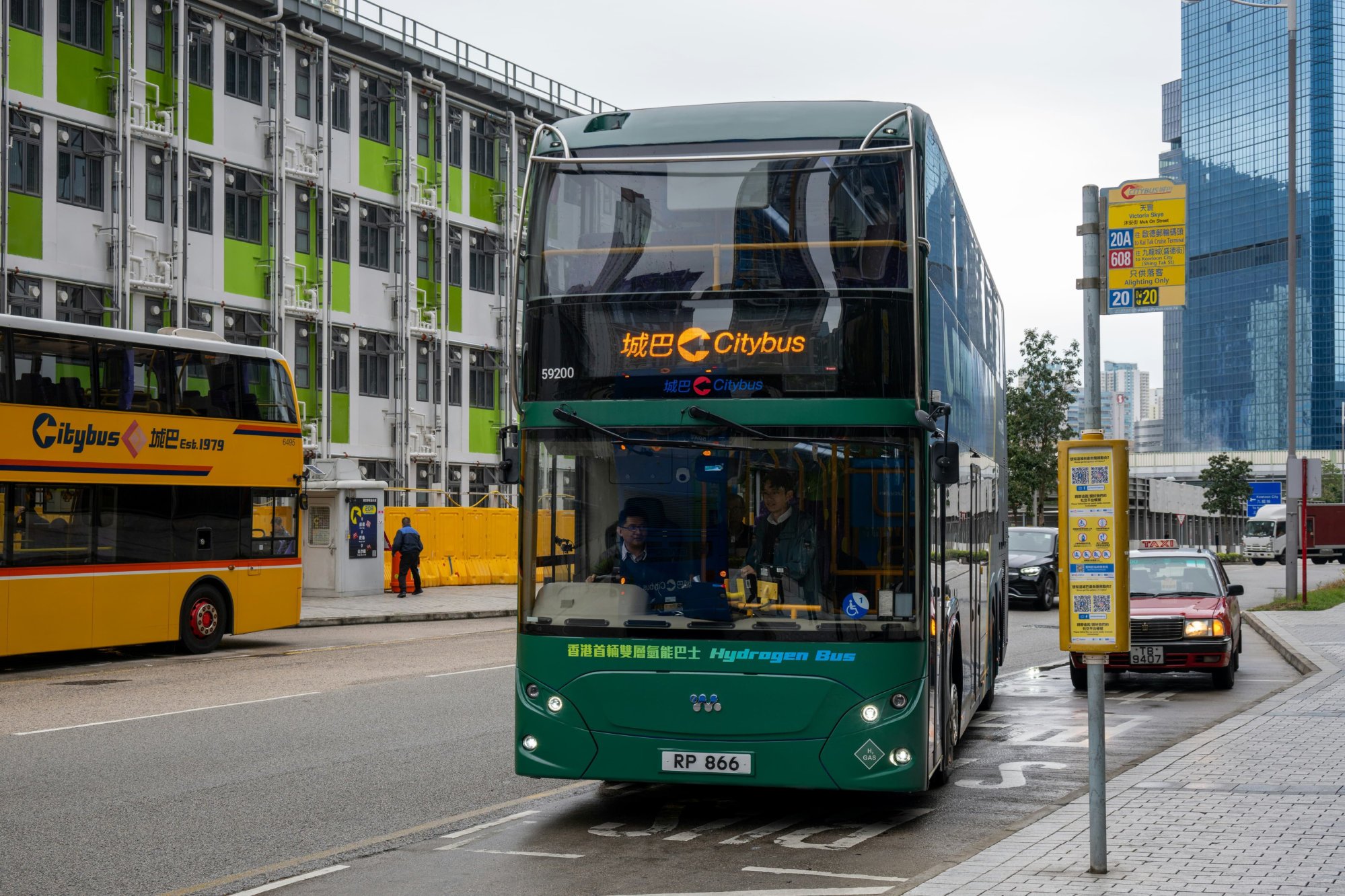In his policy speech last year, Chief Executive John Lee Ka-chiu introduced a comprehensive plan for Hong Kong to address extreme weather events, including the utilization of big data and the reassessment of contingency strategies. These initial measures mark significant progress.
While the development of infrastructure is crucial for ensuring public safety, it is imperative to acknowledge that nature itself is a fundamental component of our “infrastructure.” Hong Kong requires a holistic societal approach to enable the populace to adapt to extreme weather conditions and leverage collective wisdom to explore potential economic opportunities related to climate change.
The government unveiled its roadmap for promoting electric vehicles in 2021, aiming to phase out internal combustion engine and hybrid vehicles by 2035.
Hong Kong is set to launch its first hydrogen-powered double-decker bus onto the streets in the coming month. However, amidst the global shift towards greener fuel sources, Hong Kong must commit to widespread adoption of renewable energy sources, bolstering its expertise in the advancement of eco-friendly energy solutions such as hydrogen, ammonia, methanol, and potentially nuclear power. While the debut of the hydrogen-powered bus is imminent, regulatory frameworks and legislation need to evolve to facilitate the broad implementation of this technology.
Furthermore, there is a pressing need to enhance Hong Kong’s proficiency in artificial intelligence (AI), recognizing its transformative potential across various facets of life. While AI innovations like ChatGPT offer immense possibilities to enhance efficiency and productivity across industries, it is essential to remain vigilant about the potential drawbacks of this nascent technology.
Hong Kong’s initiative to establish a supercomputing center to foster AI development is commendable, yet it must also address the risks associated with disinformation, identified as a prominent global threat in the recent WEF report. Particularly concerning are deepfakes, highlighting the necessity for proactive measures to combat AI-generated misinformation and enhance public understanding of AI ethics.
Moreover, enhancing our understanding of the evolving geopolitical landscape is paramount. This entails navigating uncertainties stemming from political events, conflicts, policy shifts, and trade disputes globally. Given Hong Kong’s susceptibility to geopolitical risks, diversification and strategic partnerships are vital to fortify the city’s resilience.
As we navigate through a year marked by significant global elections, strengthening ties with existing economic allies and exploring new opportunities becomes increasingly urgent to mitigate risks posed by political transitions. Embracing proactive strategies to shape the city’s future is essential in preparing for unforeseen challenges.
On a local scale, Hong Kong can lead efforts in climate adaptation, knowledge exchange, and setting AI standards regionally. By extending its influence in emerging markets, Hong Kong can facilitate technology access and capacity-building, fostering equitable global cooperation. Recognizing the cross-border impact of natural disasters and AI misuse underscores the importance of proactive engagement.
Amidst escalating uncertainties, Hong Kong must adapt to the evolving landscape and position itself as a pivotal player in fostering global connectivity, preserving geopolitical stability, and nurturing optimism amidst prevailing divisions. Future-proofing the city and upholding its relevance in a dynamic multipolar world are imperative goals for Hong Kong’s sustained success.
Neville Lai, an independent international affairs strategist focusing on East Asia, serves as the curator of the World Economic Forum Global Shapers initiative in Hong Kong and is recognized as an Asia 21 Young Leader.










